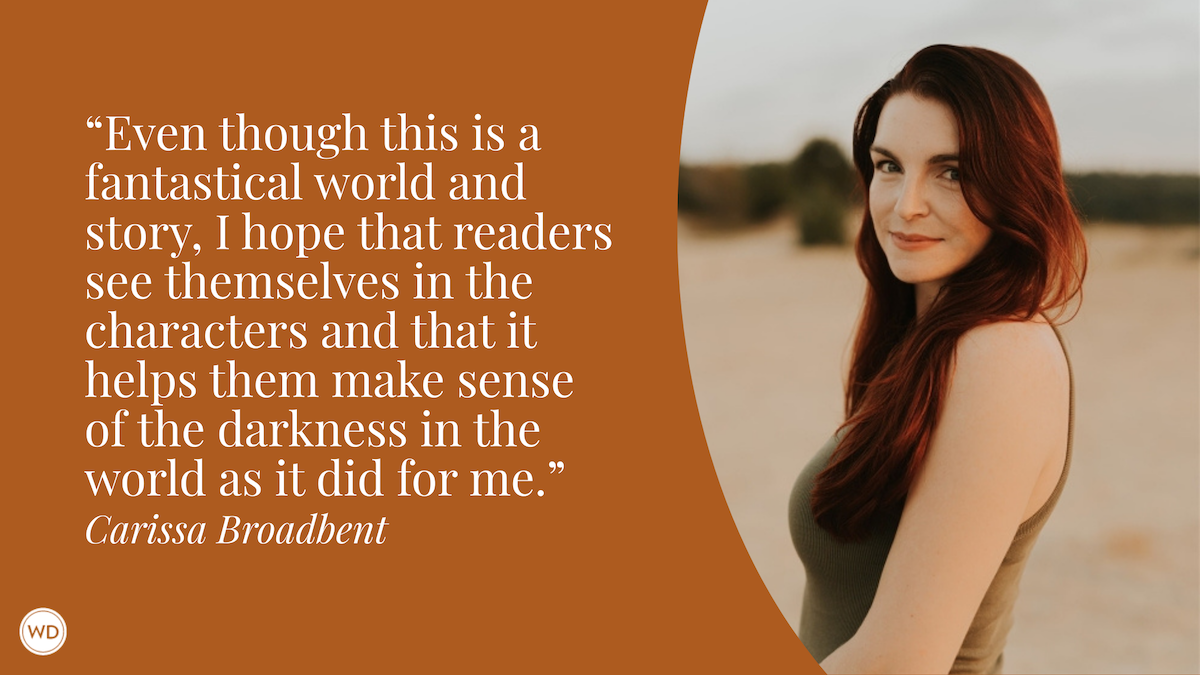How to Rev Up Your Writing: Habits for More Effective Writing
Writer’s Digest author and author coach Nina Amir shares 4 ways to create better habits for more effective writing, including cutting down on distractions.
Writer's Digest author and author coach Nina Amir shares 4 ways to create better habits for more effective writing, including tips for cutting down on distractions.
Do you wish you could rev up your writing? You know…switch each writing session into high gear so you write quickly and effectively?
Actually, you can.
But revving up your writing has little to do with writing skill, practice, or your specific work in progress. It does, however, have everything to do with you.
Let me explain.
The Writer as Race Car Driver
Imagine a race car. This high-performance vehicle represents your writing project. To win the Daytona 500 or Le Mans, though, it needs a high-performance driver to get it from the start of the race to the finish line.
You are that race car driver, and, like your vehicle, you need to have what it takes to perform at high speeds for long distances.
If, however, while driving, you regularly your hands off the wheel, rubberneck, spend most of your time looking in the rearview mirror, or continually berate yourself for your driving skill, you will struggle to finish the race.
With this analogy in mind, think about your attempts to write. Do you:
- Take your hands off the keyboard—to text, look at Facebook, get a snack, or talk on the phone?
- Look away from the screen—to watch at the bird outside your office window, check email, read a text, or organize the papers on your desk?
- Edit and revise what you wrote yesterday rather than producing more pages today?
- Tell yourself, "I'm a bad writer," "No one will want to read what I write," "I might as well not bother since no one will publish my work anyway," "That's too hard, so I'll do it some other time"?
If so, know that these unsupportive habits don't allow you to go very far or fast when it comes to writing, and, they might lead to costly mistakes as well.
Just like a race car driver, you need habits that help you perform at the highest level as you navigate from the first word of your manuscript to the last. That's how you rev up your writing.
Habits to Help You Write Quickly and Effectively
If your writing has stalled, you—the writer—need better habits. These habits must get you started, allow you to speed up, and keep you moving toward your destination, which, in this case, is a completed writing project.
If you’re ready to rev up your writing, it’s time to take control of your daily behavior. The following four high-performance habits will get you started.
- Seek Clarity.
Most writers stall out because they lack clarity about their projects. It's hard to make decisions about characters or plot, the structure of your book, or even how to publish if you lack clarity. And indecision keeps your project sitting in park with the engine idling.
To develop the habit of seeking clarity, ask lots of questions about your work in progress. For instance:
- Who am I writing for?
- What benefits will readers get from this book, article, or blog post?
- How do I make my story or subject unique and necessary in the marketplace?
- What do I want to accomplish by writing this piece?
- What's the best structure for this project?
The more clarity you have, the more easily and quickly you’ll write.
Tip: When you stop writing for the day, take a moment to get clear on what you want or need to write the following day. Be specific! For example, you could write on your calendar or in your planner, “Write the next 1,000 words of chapter 3.”
- Generate Energy
Energy comes in many forms, including physical, emotional, and mental. These three types of energy affect your ability to write productively. Plus, they are related.
When you are physically tired, your thoughts become negative, and your emotions follow suit. This makes it hard to write productively. When, on the other hand, you feel physically energized, your mindset becomes positive, which, in turn, makes you happier. This state gives you more mental, emotional, and physical energy for writing.
To develop the habit of generating energy, start at the physical level. Give both your body and brain high-quality fuel. For instance:
- Exercise three to five times per week.
- Eat a healthy diet.
- Drink lots of water.
- Sleep seven to eight hours per night.
- Find ways to reduce or recover from stress.
Also, train your mind on the thoughts and beliefs that serve you—not on negative mental chatter. A positive mindset builds mental and physical energy. It's the high octane necessary to fuel your writing efforts.
Tip: Keep a log of the number of hours you sleep each night, how many glasses of water you drink each day, and what types of food you eat. Then, track your energy and writing productivity and look for any correlations between the two.
- Become Present
Your ability to be present in any situation dictates to a large degree your outcome. Become present—conscious, aware, interested, and focused at the moment—and you'll no longer be distracted by the past or the future, which means you can focus on the task at hand—writing. Become more present by:
- Meditating for even five minutes before you begin to write.
- Eliminating distractions.
- Turning on music that helps you focus.
When you become present, you remove mental obstacles from your path, so your writing time is unobstructed.
Tip: Notice what mentally pulls you away from your writing. Make a list of these distractions. Then, find at least one way to reduce or eliminate each distraction and implement that solution.
- Act Boldly
Taking bold action every day allows you to continue toward the completion of your project despite any fear you might have.
You can't build up the courage to take bold action. Courage comes at the moment when you take action. Thus, to develop this habit, you have to take bold action regularly. Here are a few ways to accomplishing that goal:
- Develop a list of action items that will keep your project moving forward, and check off at least one item daily—even if it feels hard or scary.
- Write every day—even for 15 minutes.
- Do the scariest thing first.
This habit requires releasing the emergency brake. Create a goal of driving a little faster and a little farther every day toward completion of your writing project.
Tip: Increase your level of necessity. Consider why you need to write and publish this project or why your readers need it now…not in two years. When you become aware of the need to write—and complete—your project, you'll write quickly and consistently.
Become Your Best Writing Self
Habits are created over time. So don't expect to develop a habit after one day. In fact, studies prove habits take 66 days or more to form. The sooner you start developing supportive writing habits, though, the sooner you’ll rev up your writing.
And here’s the trophy you’ll receive at the end of the race: You become at the best version of your writing self. Like a race car driver, you’ll then be able to speed toward your writing goals and dreams and cross the finish line.
Have you always wanted to be a writer? Don't let doubt or fear get the best of you—take a chance and learn how to start writing a book, novel, short story, memoir, or essay. WD University's Getting Started in Writing will help you discover your voice, learn the basics of grammar, and examine the different types of writing. Register today!
Nina Amir is known as the Inspiration to Creation Coach. As one of 800 elite Certified High Performance Coaches working around the world—the only one working with writers, she helps her clients Achieve More Inspired Results. She helps all types of creators get from the light-bulb moment to the realization of their dreams without letting anything get in the way of that goal.
Nina is also an Author Coach who supports writers on the journey to successful authorship. She has authored three traditionally published books for aspiring authors, How to Blog a Book, The Author Training Manual, and Creative Visualization for Writers, as well as a host of self-published books and ebooks, including the Write Nonfiction NOW! series of guides. She has had 19 books appear on the Amazon Top 100 List and as many as six of her books on the Authorship bestseller list at the same time.
Nina is the founder of the Nonfiction Writers’ University, the Write Nonfiction in November Challenge, and the Author of Change Transformational Programs. She also created a proprietary Author Training curriculum and Author Career Planning program.
For more information, visit NinaAmir.com or BooksByNinaAmir.com.









